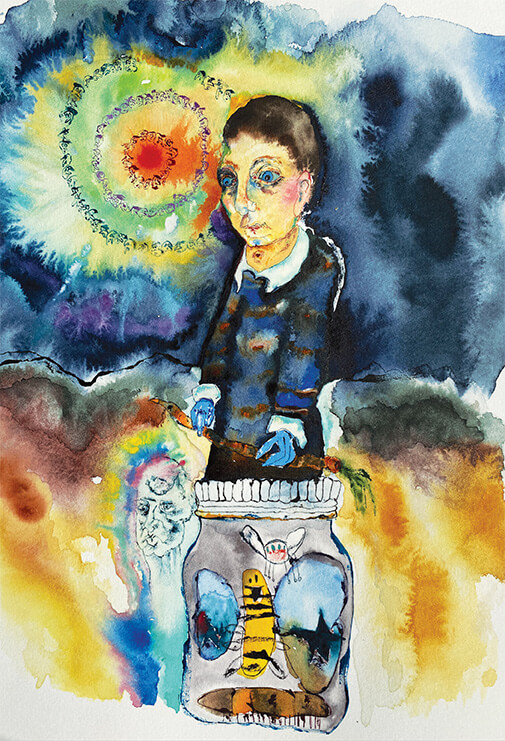- Vol. 07
- Chapter 11

A seamless transition
Boys will be men and men were once boys and what’s the difference? When Toby was a boy, he used to collect newts in a jam-jar and take them home where they would die slowly. He used to catch butterflies too because they were pretty, and the girls would giggle because they didn’t dare touch the too-many legs and furry bodies. Bees were nasty things, but his mother had a spray that got rid of most of them around the house. When he turned twelve, Toby was given an air rifle and shot pigeons because they were pests, his dad said.
Toby grew into a man and the outline of his face vacillated, became a bit flabby under the chin, and his waist thickened. He wore suits instead of tee shirts and short trousers, and he hadn’t looked inside a jam-jar in years. After university, Toby got a job with a multinational company that paid him a decent salary, and the effects of what his job did to the environment were so far removed from the executive development where Toby lived that he could, in all honesty say, he saw none of it.
There are no more newts at the dam, that was enclosed years ago in the sarcophagus of a commercial centre, and butterflies are a rarity. Toby doesn’t have to worry about bees any more (his employer is seeing to that ha ha—family in joke), but he turns up his nose at the pigeons that hobble and squabble around the dustbins where foxes lurk at nights, scavenging.
Toby has a son now, who doesn’t know what newts are, or were, and his knowledge of wildlife is restricted to Disney images with smiling, humanised faces. Toby worries about the environment, as much as all thinking people, and won’t let his wife use the same sprays and air fresheners, bug killers and sanitizers that his mother used. The environment inside his house is clean and pure.
Outside, of course, they all wear masks.
